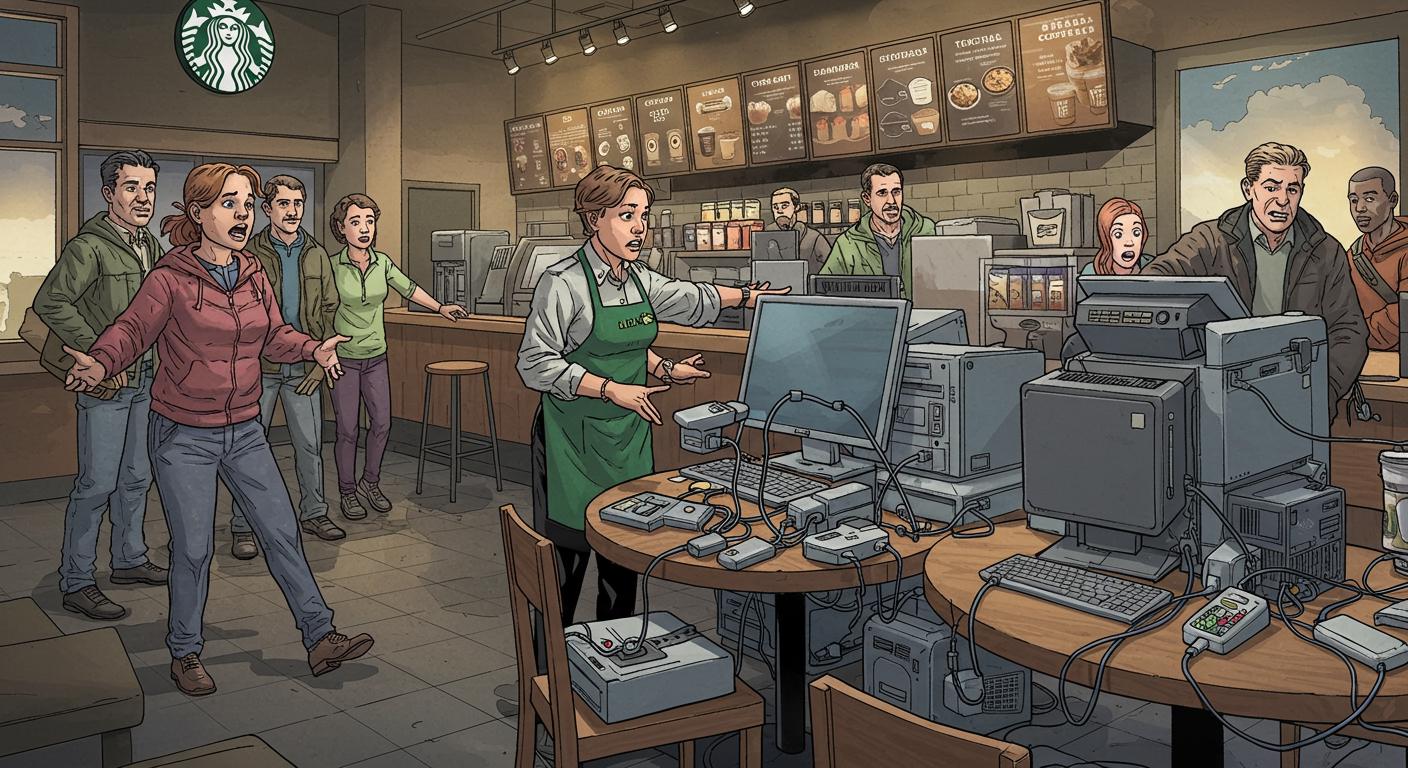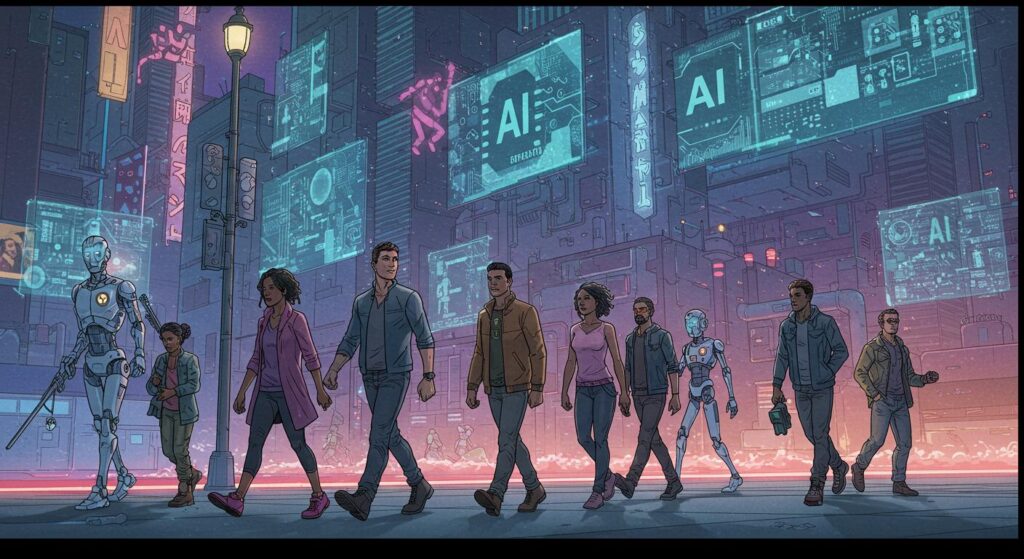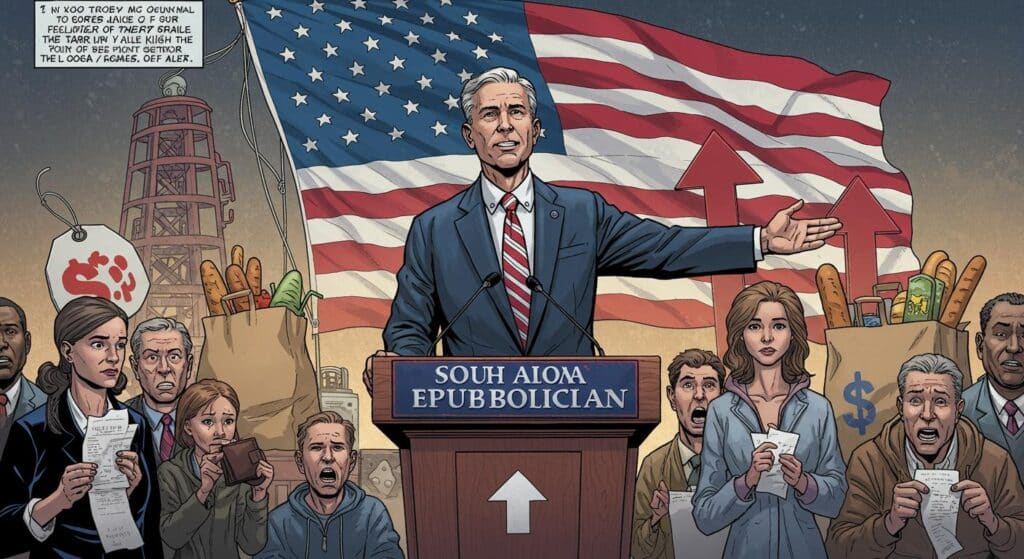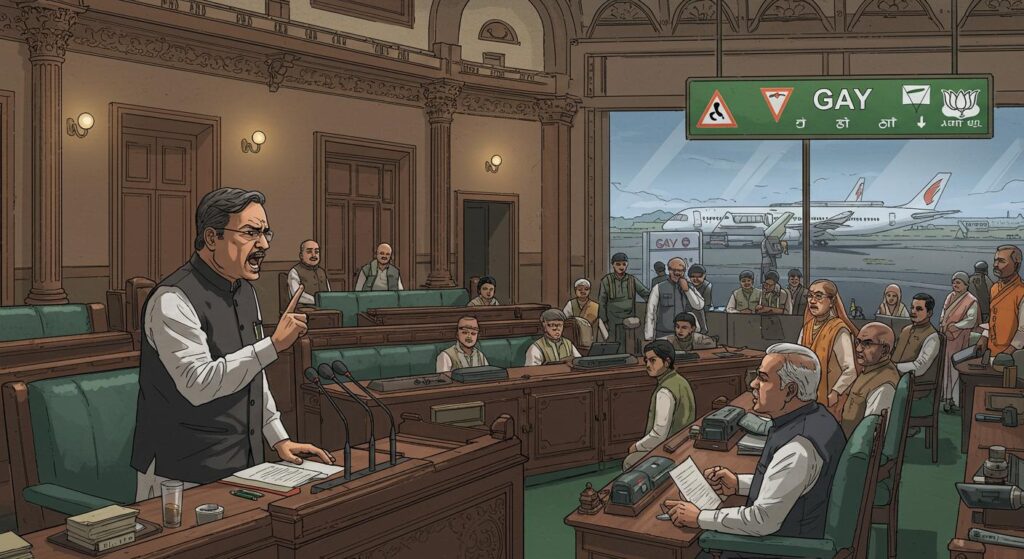There are certain fixtures of café life I’ve come to accept without question: the careful arrangement of laptops on tiny round tables, the plaintive hunt for a free outlet, and—if you’re really lucky—a smattering of folks who seem to be writing the next Great [Insert Country Here] Novel. But even the most seasoned observer of café culture might do a double take at the sight of someone lugging in not just a laptop, but their entire desktop computer—and, in a detail highlighted by Korea JoongAng Daily, sometimes even a printer, dividers, and a power strip—into a Starbucks in Korea. If there’s an Olympics for “settling in,” these folks would be at least qualifying for regionals.
The Rise (and Now, Fall) of the Café Office Fortress
Described in the outlet’s recent reporting, Starbucks Korea has introduced new store guidelines barring the use of desktop computers, printers, personal partitions, and multi-tap power strips in all café locations across the country. This directive—distributed to stores nationwide, according to industry sources cited in Korea JoongAng Daily—authorizes employees (referred to as “partners” in Starbucks parlance) to politely inform customers if their workspace set-up starts to resemble an IT department satellite office.
The phenomenon, dubbed “cagong”—a portmanteau of “cafe” and “gongbu” (the Korean word for study)—has outgrown the early days of the student prepping for a finals blitz. The outlet reports that the current crowd includes remote workers, university students, and anyone brave enough to treat a Starbucks table like their long-term lease on commercial property.
Printers, Partitions, and Public Spaces
Photos and online chatter reviewed by Korea JoongAng Daily depict some particularly ambitious “cagong” practitioners: one recent image circulating online showed a customer at a Starbucks in Andong who brought a printer, plugged it into a café outlet, and proceeded with business as usual. In another instance documented by the outlet, a customer set up a tablet and keyboard behind a self-installed partition—essentially DIYing a cubicle out of what was meant to be public space.
Store partners are now tasked, under the updated policy, with verbally advising customers to cease using excessive electronics or personal equipment. Additionally, anyone leaving belongings on a table for lengthy periods or occupying a big table solo may be asked to relocate so others have a chance at a seat.
The policy shift, according to a Starbucks Korea spokesperson quoted in the report, aims “to ensure a more comfortable and convenient store experience for our customers and to reduce the risk of loss or theft when seats are left unattended for long periods.” This statement, paired with an uptick in customer complaints about marathon study sessions and territory-claiming, appears to have pushed the coffee giant into action.
The Ambience Arms Race
As previously reported by Korea JoongAng Daily, Korea’s “ambience arms race” in cafés is nothing new. Small independent coffee shops have long since resorted to tactics like disabling power outlets or capping customers’ stays to two hours, all in an effort to deter visitors from setting up a temporary command center on little more than the price of a single Americano.
There’s an odd kind of irony playing out: the same background buzz and comforting caffeine supply, once prized for fostering quick creativity or focused study sprints, have instead spawned an environment where “table occupation” is advanced to a competitive sport. Is there a world where someone might drag in a mini fridge or ergonomic chair, just to maximize those borrowed square feet?
Is This the End of Ultimate Café Camping?
Whether this move spells the extinction of the ultimate café camper is up for debate. Korea JoongAng Daily notes that the “cagong” trend had already sparked widespread commentary and armchair policy debates online, particularly after images of printers and partitions took off on social media.
In an era when work, study, and leisure have already blended into a single, perpetually caffeinated blur, Starbucks Korea’s policy can be viewed as equal parts necessary reset and modern culture punchline. After all, cafés were conceived for sipping coffee, not establishing satellite offices.
For those hoping to finish their novel, itemize their taxes, or crank out a ten-page report from behind a homemade sound barrier inside a Starbucks, it might finally be time to travel lighter. Or perhaps seek out the next frontier of communal space appropriation. Looking forward, what strange claims to public territory will we find ourselves reminiscing (or marveling) over in another decade?







